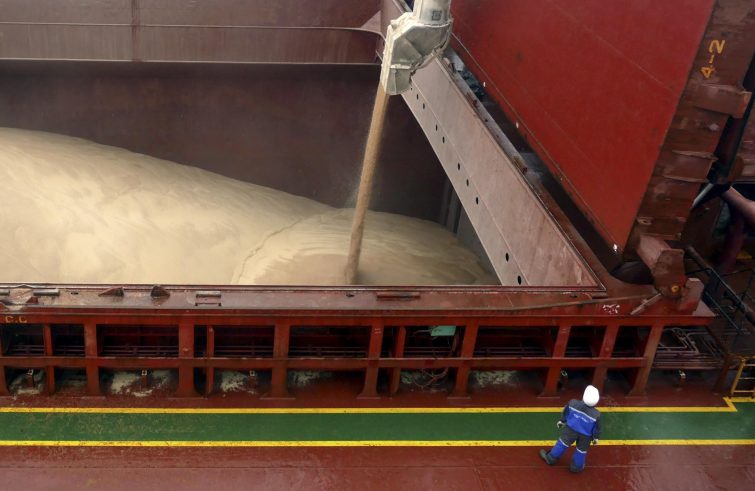
Italian Caritas hopes for “mediation by the UN and other governments that will lead to a reconsideration of the Russian decision” not to renew the agreement to export Ukrainian grain through the three Black Sea ports of Chornomorsk, Yuzhny and Odessa. Paolo Beccegato, deputy director and head of the international section of Caritas Italy, told SIR. The agreement expired at midnight of 17th July, and there have already been numerous appeals, including one from UN Secretary-General Antonio Guterres, who fears that hundreds of millions more people around the world are at risk of starvation. Russia, which bombed Odessa in the last few hours, agreed to send free grain to African countries in need, but concern is growing about the potentially devastating effects of not renewing the grain deal signed by the UN, Russia, Ukraine and Turkey. Diplomatic efforts are already under way. “The instrumentalization of food is a growing phenomenon that is scandalous because it dramatically affects the lives of millions of people,” says Beccegato.
What signals are you getting from the territories and the humanitarian workers? And what would be the consequences of stopping the Black Sea corridor?
The overall context of this hopefully temporary decision is very worrying. The territories are very concerned: both about the issue of hunger, with the risk of rising grain prices, accessibility and distribution, and about the growing impact of natural disasters and wars on the humanitarian sector. There are more people in the world in need of humanitarian assistance. We already have more than 110 million displaced people and refugees, and if we look at the conflict in Sudan, that number is expected to increase. The other worrying aspect is the increasing number of wars in the world. Both from a humanitarian point of view and from the point of view of endemic and structural hunger, there is a very strong concern because the mechanisms are very delicate. It only takes one link in the chain to fail and everything falls apart. Across the continents, on a global scale, there is great concern. Western countries, including Italy, are among the main importers of Ukrainian wheat, but we should not forget that there are all kinds of triangulations, food processing and subsequent distribution in the markets. We need to look at the phenomenon in its complexity and globality, not just at the first destination markets.
To be sure, the risk of global inflationary pressures is as real as ever.
There is a growing link between conflict, hunger and poverty. Is food being instrumentalized in this case?
Yes, it is an unfortunately recurring fact in recent wars, even in Syria for example. This was not the case ten years ago.
There have been increasing phenomena of the instrumentalization of food as a tool of warfare
To starve the enemy side. Obviously, no distinction is made on the enemy side between the militiamen, that is, those who make and want war, and the civilian population, and this has enormous consequences for the conflict itself. Indirect casualties are actually higher than direct casualties. Ninety percent of the victims are civilians, but if we look at the victims in a broader sense, such as those who have serious or very serious problems of access to food, the instrumentalization of food is a growing phenomenon that is scandalous because it makes life dramatic for millions of people. It is a decision that should be condemned, but it should also be said that there is a growing phenomenon of using all commodities, especially food, as an instrument of war.
Are there similar dynamics in other wars?
Certainly in Yemen, in the Democratic Republic of Congo, in the Central African Republic, in Tigray in Ethiopia, in Somalia. It is a global, widespread phenomenon, the full consequences of which are not fully known. Because hunger is a less visible fact than bombing deaths.
The U.N. fears that hundreds of millions more people could go hungry due to non-renewal of the agreement. Is this the case?
Yes it is, because Ukraine is among the largest exporters of wheat in the world.
Any complete and final stoppage would create a huge problem,
that’s why we have to make a really strong appeal for negotiation, for reconsideration in the coming days, and not wait too long. We know that the dynamics are very intertwined and that decisions can also include some tactics that can be reconsidered in a more forward-looking rationale. We are aware of high-level Russian and Ukrainian meetings with African leaders. We strongly urge that there be a reconsideration of this decision and that there be some mediation by the UN and other governments. In terms of the terms of the issue, some aspects can be revised and improved, the hope is that the margins that currently exist for the distribution of grain can be expanded and that this decision will be revised. Because if there is a total freeze, for a long period of time, it would be really dramatic.
What is also new in this war is the mediation of the African Union, which is taking on an important role.
Indeed. In this case, it is not the instrumental use of food that harms the enemy population, but the fact that the enemy country sells the food and can use the proceeds to obtain useful resources for the war itself. The fact that African leaders take action because they are indirectly affected by these mechanisms is very important, because it at least points out the pernicious effects of certain decisions. As John Paul said in Sollecitudo rei socialis, “We are all truly responsible for all,” the evil created in some parts of the world can have consequences everywhere. We must try to put a positive spin on this phrase. And we also emphasize the importance of mediation: the role of mediator is also crucial on a global scale.










